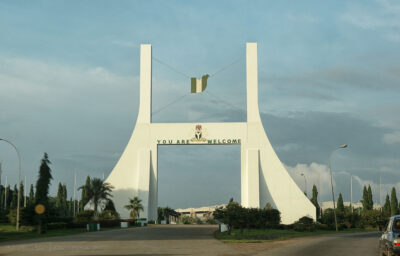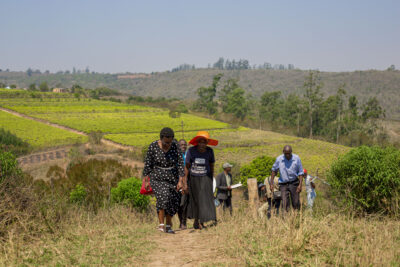
Historians prefer to explain historic events only after enough time has elapsed. The task of understanding a (possibly) revolutionary moment as it unfolds is unthinkable to them. As a student of history, I am dumfounded by the ongoing pro-democracy uprising in Egypt. But as someone who cares deeply about the country, I am also very hopeful and extremely worried. My reflections are not those of an expert but of a potential participant who accidentally happened to be outside of Egypt on January 25.
As the news of popular protests continues to come from Cairo and other Egyptian cities, the enthusiasm of pro-democracy activists is matched only by the fear of political conservatives. In the United States, a common concern is whether democratic change would empower the Islamists in Egypt and lead to a Khomeini-style regime. Another cause of alarm is the fate of the Egyptian-Israeli peace treaty, and what its abrogation would mean for American interests in the Middle East. Egyptian demonstrators who are taking the substantial risk of challenging Mubarak’s regime, however, have neither of these concerns on their minds. Their goal is to replace a 30-year old authoritarian regime with a democratic one in which they can enjoy basic political and human rights. Their cause is unquestionably just, and their means to achieve it have been peaceful.
I do not fear from this uprising but I fear for it.
In the past couple of days, there has been a visible division between those who want to continue the protests until Mubarak steps down and those who are satisfied with the concessions he has made and wish to go back to their normal lives. This division was bound to happen, but Mubarak’s brutality made it happen too soon. After the anti-riot police failed to quell the protests using tear gas and rubber bullets for three days, Mubarak suddenly withdrew all police forces from Cairo and Alexandria. His move was meant to terrorize the cities’ residents—to convince them that the only alternative to his remaining in power is total chaos. However, within hours, neighborhood watch groups emerged, and whatever ambivalence some of them may have felt towards the protests was gone. Left to fend for themselves, even those who were indifferent to the uprising had become part of it. But Mubarak’s second move was more brutal and succeeded in re-dividing Egyptians. After an emotional midnight speech in which he claimed not to have intended to run for re-election for a sixth term, the protestors in downtown Cairo woke up to the surreal experience of pro-government thugs on camel and horseback attacking them with clubs, swords, and Molotov cocktails. Mubarak’s officials and media told Egyptians who were busy defending their own homes away from downtown that the protestors were responsible for the excessive violence and that they were irrationally unresponsive to the government’s “significant concessions.” Hence, a certain disconnect emerged between the protestors in downtown Cairo and Alexandria on the one hand, and their compatriots who were protecting their homes on the other. This divide will probably widen over the next days and weeks, especially as the false idea that the protestors are solely responsible for the deterioration of the situation gains ground.
The army’s role is another divisive factor. When the army tanks and armored cars first drove into downtown Cairo, the protestors cheered them. The scene baffled many observers who understood army intervention to be an escalation on the part of the government, an attempt to quell the protests more violently. They were wrong. The Egyptian army is known to be disproportionately privileged but not corrupt. It manages its own micro-economy that includes, among other establishments, hotels, factories, farms, and theaters. However, it is police—and not army officers—that are involved in torturing detainees, kidnapping activists, rigging elections, and other similar excesses. In the context of the protests, the intervention of the military indicated that the protestors’ victory over the anti-riot police that had been clashing with them for three days was sealed, and that they were safe. Indeed, army personnel did not intervene against the protestors. To the contrary, they interacted with them amicably, allowing them to assemble freely and even to pose for pictures on top of tanks. However, their position became more worrisome as they did not intervene to protect the protestors when pro-government thugs launched their attack after Mubarak’s second speech. The army may be keeping order and not harming the protestors, but it is not consistently protecting them. In addition, senior army figures have replaced businessmen as the dominant force in Mubarak’s new government, most notably holding the posts of Vice President and Prime Minister. There is no reason to believe, so far, that the army would support a democratic transformation, especially one that by definition would impose civilian checks on its micro-economy and decision-making.
Finally, no political figure or group has so far succeeded in acceptably articulating the demands of the protestors. Over a period of three decades, Mubarak’s domestic policy has put in place elaborate legal limitations on political activity. Legally recognized parties are extremely weak and have no real following. Their irrelevance to the uprising is evident, as most of them initially refused to take part in it. Even the officially banned Muslim Brotherhood did not join the protests until it was obvious that their scale and geographical distribution was unprecedented and that their success in exercising effective pressure on Mubarak was imminent. Non-partisan groups, such as the 6th of April Youth Movement that initially called for the protests and ElBaradei’s National Association for Change, were active but had been surprised by the scale of the event. In other words, they were amazed by their own success. In fact, ElBaradei was in Vienna when the uprising started and only flew to Cairo on its third day. Disagreements over the exact articulation of demands weaken the protestors every day. Their disagreement is a card in the regime’s hand as it negotiates with the United States over the “orderly transition of power.” Moreover, it puts pressure on the protestors from their compatriots who are not actively participating in the protests, and who are running out of money and food and are getting tired of protecting their own neighborhoods.
Do these divisions mean that the uprising has failed in changing the composition of the Egyptian regime? No. The uprising has succeeded in weakening Mubarak tremendously. It ended the political ambitions of his unpopular son, Gamal. In his desperate attempts to remain in power, Mubarak has also disowned a number of powerful businessmen, the architects and main beneficiaries of his aggressive program of neo-liberal economic reforms. However, the uprising has unwittingly further empowered the already strong military and involved it more heavily in domestic politics. The military may be Mubarak’s only hope to stay in power until the end of his term later this year. But it is also his most likely inheritor if no significant constitutional and legal changes are introduced. If the uprising ends now it will have rearranged the regime, but there is no guarantee that it will have achieved a meaningful democratic transformation. In fact, it may be the case that Mubarak’s security-driven policy would be further entrenched.














